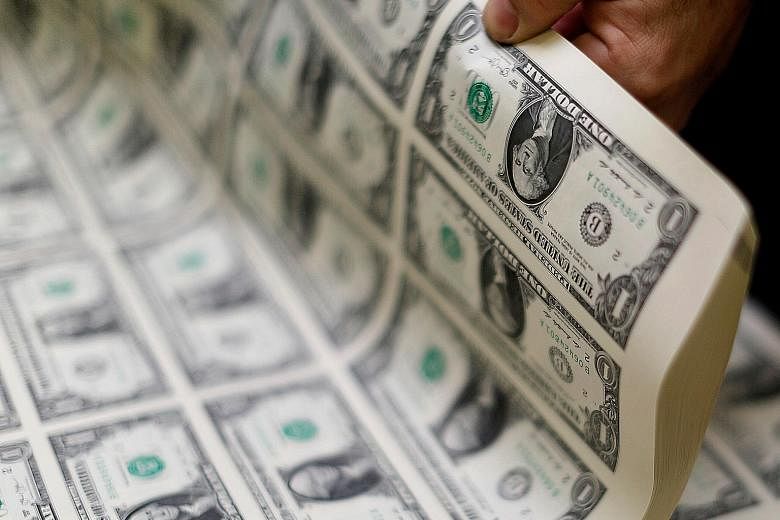Cash does not have the status it used to. Concerns about a decline in the acceptance of cash surfaced well before the coronavirus arrived, as consumers grew more comfortable shopping online with credit or debit cards and paying quickly with mobile apps. Many businesses like electronic payments because they speed up purchases and reduce concerns about theft.
Then, during the pandemic, restaurants and stores emphasised online ordering and digital payment to reduce interactions - and the risk of infection - among customers and employees. And, as consumers stayed home, coin shortages occurred, making it difficult for some stores to give change. That added to a preference for electronic payments.
But as digital payments become more widespread, "we're concerned that people aren't going to be able to pay for necessities", said Ms Linda Sherry, director of national priorities at Consumer Action, an American advocacy group.
Businesses that refuse cash put at a disadvantage people who lack traditional bank accounts or cannot qualify for credit cards, consumer advocates say.
Many people still like cash because it helps them budget their money or teach their children about spending. Others may be wary of a loss of privacy and vulnerability to hacking with electronic payments.
Consumers still use cash for more than one-quarter of all payments in the United States - cash was used for almost half the payments under US$10 (S$13.60).
And, contrary to popular perception, 70 per cent of those surveyed amid the pandemic in April and May said they were not avoiding cash because of concern about the virus. Cash remains important to consumers despite a menu of competing payment options.
"Many consumers value and prefer to use cash for everyday purchases, while others use cash as a backup or for the convenience of small-value payments," said Mr Mark Gould, chief operating officer of the Federal Reserve Bank of San Francisco.
Ms Shelle Santana, a visiting scholar at Harvard Business School who has studied payment trends, said it was unclear how aggressive the enforcement of the cash requirements had been during the pandemic. She said she foresaw a "less cash" society, rather than a truly cashless one, in the near term, because many people continue to rely on hard currency.
Some businesses that stopped accepting cash have reversed their policies voluntarily, she noted, after realising they were excluding some customers. "No one," she said, "wants to turn away business."
Here are a couple of questions and answers about paying with cash:
CASH STILL LEGAL TENDER?
Currently there is no law to state that businesses must accept cash or coins as payment.
"Private businesses are free to develop their own policies on whether or not to accept cash" unless state law says otherwise. Businesses like movie theatres, convenience stores and petrol stations may refuse to accept bills over US$20, and bus lines may ban payment of fares in one-cent coins, the US Treasury Department says.
IS IT SAFE TO PAY WITH CASH DURING THE PANDEMIC?
The virus that causes Covid-19 is mainly transmitted through close person-to-person contact, the US Centres for Disease Control and Prevention (CDC) says.
It is possible that someone could become infected by touching a surface or an object with the virus on it, but "this is not thought to be the main way the virus spreads", according to the agency.
While there has been concern that handling cash can spread germs, touching a payment terminal or handing a plastic card to a clerk may also pose a risk.
The CDC suggests using touchless payment if possible. "If you must handle money, a card or use a keypad, use hand sanitiser right after paying," it says.
The World Health Organisation has said that "it is good hygiene practice to wash your hands after handling money, especially if eating or handling food".
NYTIMES

